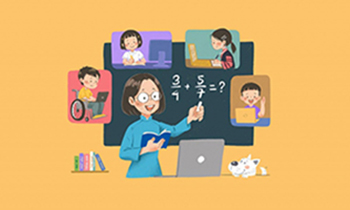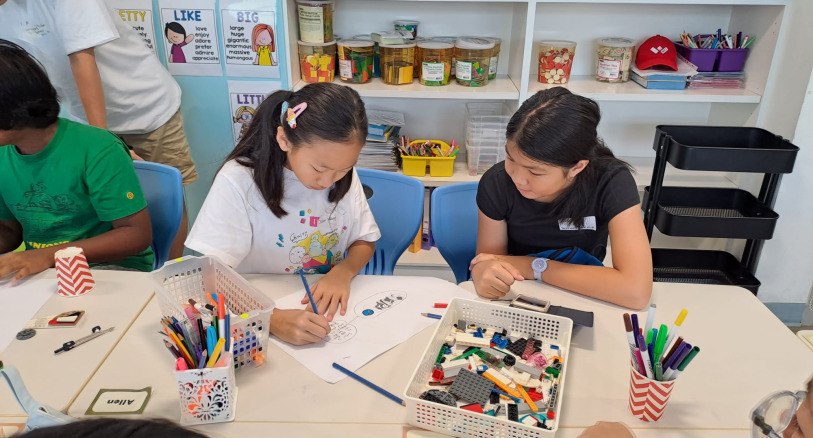Parents look at Online Learning as Screen Time. That mindset will prevent kids from accessing high quality education from across the globe. Online learning became increasingly popular among children during Covid. This type of education offers a number of benefits that can have a positive impact on children’s lives.
- One of the main advantages of online learning is flexibility. Children can access their coursework from anywhere and at any time, making it easy to fit education into their busy schedules. This can be particularly beneficial for children with busy extracurricular schedules, such as sports or music lessons, or for children who need to be home-schooled by choice or for medical reasons.
- Online learning also allows children to learn at their own pace. Traditional classroom environments can be challenging for children who are struggling to keep up with their peers, or for children who are advanced and need more challenging material. Online learning allows children to work through material at a pace that is comfortable for them, which can lead to greater success and self-motivation.
- Another benefit of online learning is the ability to access a wider range of resources. Online classes often provide children with access to a wide range of educational materials, such as videos, interactive simulations, and virtual labs. This can make the learning experience more engaging and interactive, which can help to keep children interested and motivated.
- Online learning can also provide children with access to a wider range of teachers. Traditional classrooms are often limited to the teachers who are available at a particular school. Online learning, on the other hand, can provide children with access to teachers from all over the world, which can expose them to different teaching styles and perspectives.
- Online learning can also be beneficial for children who have special needs. Many online learning platforms offer accommodations, such as closed captioning and text-to-speech, which can make the learning experience more accessible for children with hearing or visual impairments.
- Online learning can also be a cost-effective option for families. With the cost of education rising, many families are looking for more affordable alternatives. Online learning can be less expensive than traditional brick-and-mortar schools, as there are no costs associated with commuting or school uniforms.
- Finally, online learning can help to prepare children for the future. As technology continues to play an increasingly important role in our lives, it’s important for children to be proficient in using it. Online learning provides children with the opportunity to develop the digital skills they will need to be successful in the future.
Overall, online learning can have a positive impact on children’s lives by providing them with flexibility, individualized instruction, a wider range of topics, access to a wider range of teachers, accommodations for special needs, cost-effective options, and opportunities to develop digital skills. As the education system continues to evolve, it will be interesting to see how online learning continues to shape the way children learn and grow.
While online learning can be beneficial for children, it’s important for parents to regulate screen time to ensure that it’s used for constructive learning. This can do so by using some of the below tactics
- One way to do this is by setting limits on the amount of time children can spend on their devices each day. This can help to prevent children from becoming overly reliant on technology and ensure that they are using it in a balanced way. Parents can also set specific times of the day when children are allowed to use their devices, such as during homework time or after they’ve completed their chores.
- Another way to regulate screen time for constructive learning is by supervising children’s online activities. Parents can monitor the websites and apps that children are using, and make sure that they are appropriate for their age and development. Parents can also use parental controls to block inappropriate content and limit the amount of time children can spend on certain websites or apps.
- It’s also important for parents to encourage children to engage in other activities, such as physical exercise, reading, and spending time with family and friends. This can help to balance out the time children spend on their devices and prevent them from becoming too sedentary.
- Finally, parents can also take an active role in their children’s education by being involved in their online learning. This can include helping children to set goals, providing them with feedback, and encouraging them to ask questions.
In summary, while online learning can have many benefits, it’s important for parents to regulate screen time for constructive learning by setting limits, supervising children’s online activities, encouraging other activities, and being involved in their children’s education. By taking these steps, parents can help to ensure that children are using technology in a balanced and productive way.
In addition to traditional school, tuition, and enrichment programs, it is also beneficial for students to enroll in online classes that provide global exposure and skills they will need for the future.
Online classes can expose students to a diverse group of classmates from all over the world, which can broaden their perspectives and help them to understand and appreciate different cultures. This can be especially beneficial for students who may not have the opportunity to travel or study abroad.
Online classes also provide students with access to a wider range of resources and teachers, which can help them to learn about different subjects and disciplines. For example, students can take online classes in Entrepreneurship. These classes can help students to develop the thinking abilities they will need to be successful in the future.
Instead of regarding online classes as a hindrance, both educational institutions and parents should see them as a chance for growth and advancement.



























